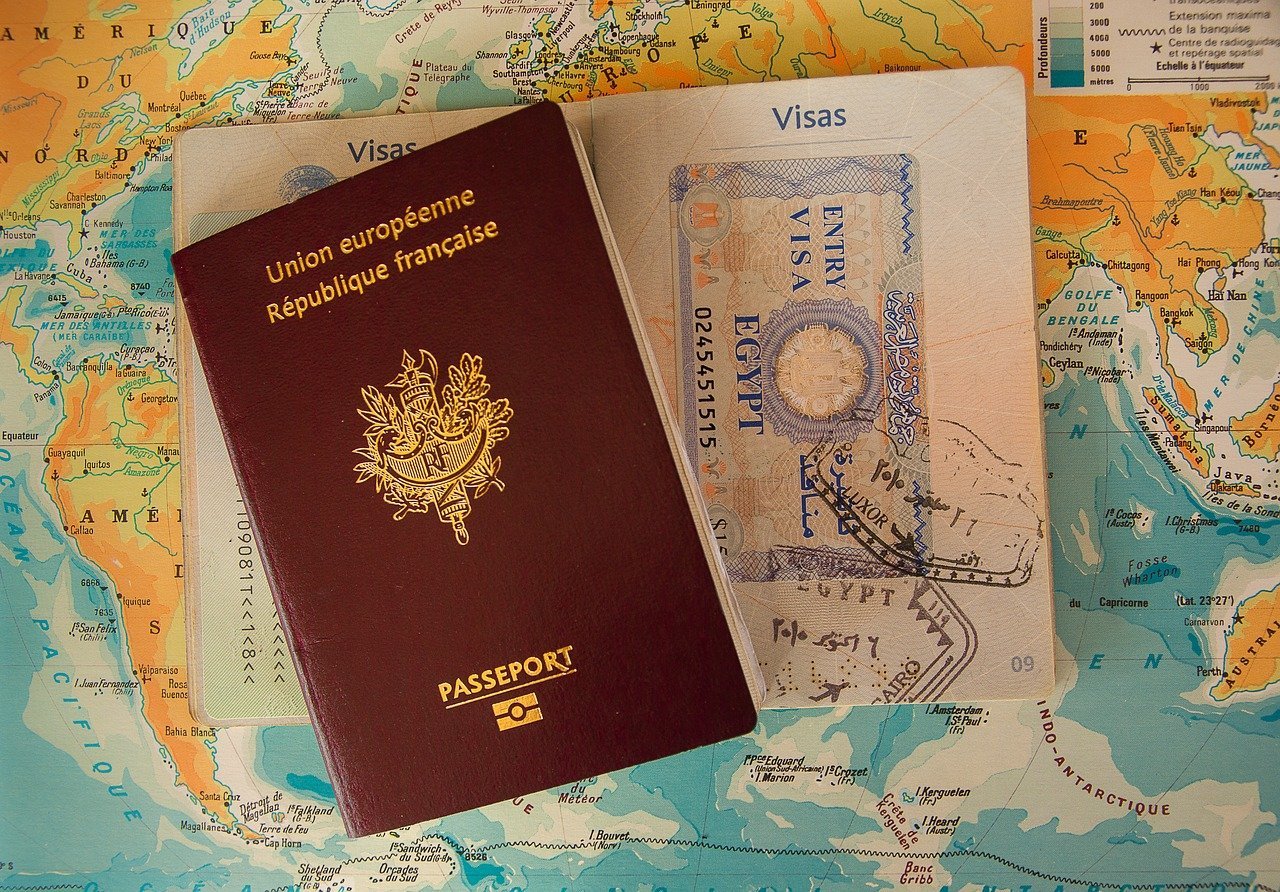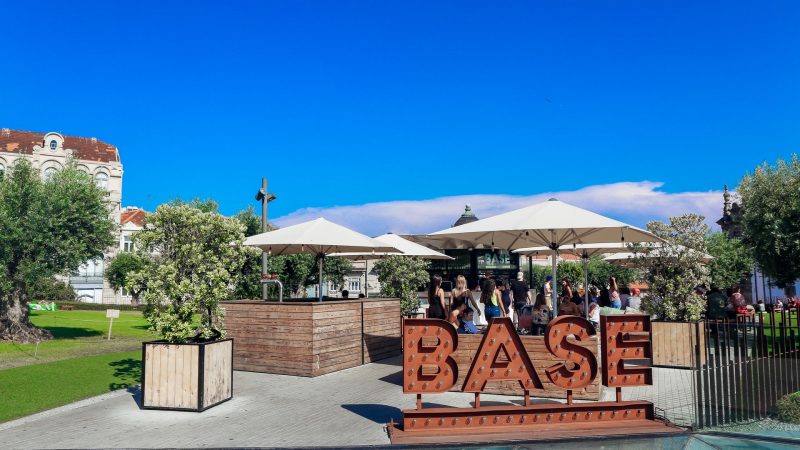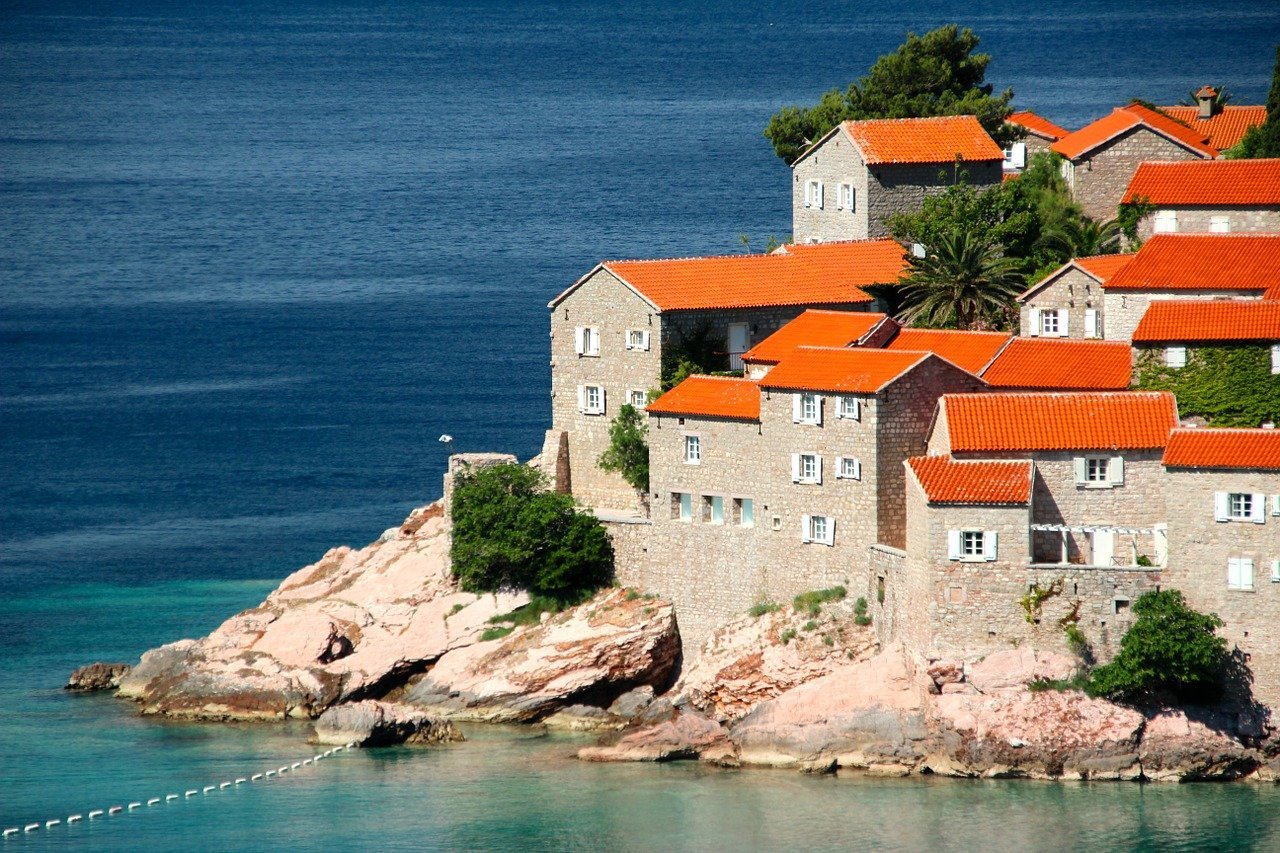Visa vs. temporary residence permit. What’s the difference?

OK, you’ve got a visa.
Or maybe you’ve checked online, and your destination is “visa free”.
You’re sorted, right?
Well, hold on there my friend and keep reading.
There’s a difference between having a visa and having a Temporary Residence Permit.
This is important depending on what you want to do in your latest country.
Quick Overview
Visa versus Temporary Residence Permit
Here’s the difference:
- a visa is usually your entry permission – i.e. it means you can cross the border and enter a country
- a temporary residence permit is your ticket to staying in the country and is usually given for a specific purpose (work, study or retirement/living from investments)
If you’re going to live in a new country most of the year, you are usually going to need a temporary residence permit.
What about visa-free?
A lot of us benefit from visa-free access to many countries, just with your regular passport.
This means you can visit without a lot of hassle. For example, as a USA citizen you can visit the EU very easily. You basically just show up.
If you’re in the visa-free camp, that’s great but it is just the first hurdle above – i.e. your entry permission – and not a permission to stay.
You already know this because you will have had stamps in your passport that say “leave to enter for 90 days” or “no work or social security”. Visa-free gives you access as a tourist or a visitor, but not any kind of permission to stay long term.
(Of course, you could do endless visa runs digital nomad style. But this can come back to bite you, particularly when you need local services, have to sort out your tax situation or want put some roots down with an apartment or a piece of land. Having papers makes things easier. Having no papers can breed you a dragon.)
If you’re coming to work or study, some countries will let you in visa-free but insist you get a Temporary Residence Permit very soon after arriving.
Germany is like this.
Other countries do not like it if you arrive on a tourist visa, or visa-free, and insist you apply for a study, work or another type of visa before you enter the country.
You usually need to do this at the embassy or consulate in your home country, and it can involve some paperwork.
It’s important to be on top of this as it can be costly to do it the wrong way around and need to retrace your steps.
OK, I do need a visa first…
No stress.
Apply at the Embassy or Consulate for the country you want to go to.
Carefully collect all the documents needed to support your application.
Make sure the cash and insurance aspects of your application are strong. If these are weak, it is often the cause of delays and can lead to a visa refusal.
Typically, there will be an online system. You can use this type of system to apply and set up an appointment with the Embassy or Consulate.
Or sometimes you need to apply on paper but they have an online system for you to book the appointment.
Once you’ve applied, it’s a waiting game.
Sorry folks: a reality check. The visa process is a screening process, sure, but it is also a process for slowing down incoming flows of people.
If they’re not keen on you, you are not going to get a quick answer.
And if they’ve been given “go slow” orders on certain categories of visas, they’re going to take their time or just beef up the documentation requirements that applicants need.
In my experience, the more cash you are bringing to the country, or if what you’re doing is going to be important to their economy, the faster they are going to be in approving you.
So how do I get my Temporary Residence Permit?
Typically, once you’ve entered the country – with the proper visa (if required) – you can apply at a local immigration office, department of population or a police station.
In France, there are special offices around the country where you can apply for your first residence permit or extend an existing one.
In some countries, you will need to apply at the police station.
Of course, these places are going to have a specific government form you need to fill in.
You’re also going to have to provide some documents.
These documents depend on your purpose of stay within the country. So:
- for work – a work contract
- for study – proof of your enrolment at an educational institution
- for property ownership – proof you own a property and intend to stay there
- for your own company – proof of incorporation, registration of a branch and your employment as managing director (if required)
- for a passive investment/retiree situation – proof of your income stream (i.e. copies of dividend reports, interest reports…)
- for most purposes – proof of medical insurance, proof of sufficient means (cash), proof of an address, criminal history clearance from your home country…
Exactly what circumstances will let you have a residence permit, and what documents you’ll need, depends of course on which country you are talking about.
What does my Temporary Residence Permit allow me to do?
First of all, stay.
This is big.
You are not a tourist anymore.
Your permit allows you to stay for a defined period of time, and usually longer than a visitor’s visa or visa-free period.
You can usually stay until the expiration period written on the permit.
Depending on your specific permit, it may authorize you to do other things like:
- work
- study
- run a business
- live and stay without an activity
Your permit can also prohibit certain activities.
For example, a residence permit issued for study can say you can’t work, or that you can only work 20 hours per week (this is common).
If you have a passive investment visa, or a retiree visa, I’ll bet bottom dollar that your residence permit says you can’t work.
If you have a residence permit issued for work, you usually cannot start your own business or change to an independent activity without getting permission.
You can check these conditions easily. They will be written on the permit or encoded on it. If your permit doesn’t have much information, there is usually a website you can check the different codes on. Or you can phone them up.
At the end of your period of stay, a permit can be renewable or non-renewable.
If it is renewable, you can usually apply again at the local office for a new permit. You may need to provide documents as part of your renewal. Generally, though, this is an easier process than the first time you apply for your permit.
One big other point to note is about taxes.
Once you’re resident in another country, there’s a good chance you are going to become a tax resident of that country. This means you may need to file a tax return in your new country, and it may change the level of taxes you owe in your home country/old country.
Tax residence though is a whole article by itself.
Word to the wise: don’t let a tax residence change happen without you knowing about it, and planning for it.
What’s the difference between Permanent Residence and Temporary Residence?
Generally, you can get permanent residence after you have been living a while in a country, legally, on a temporary residence permit. But you need to wait a number of years.
This will differ depending on the country.
In some countries, four or five years is enough.
In other countries, you could be looking at ten years or more.
In some countries, beware, certain types of temporary residence permit never lead to permanent residence.
France, Portugal and Canada, for example, are fairly easy-going on converting you to a permanent resident.
Some countries in the Middle East will never let you become one.
Be clear on the track you are on, in advance.
Is it the track you want? Is it a dead end? What requirements do you need to meet to ‘upgrade’.
Bottom line: Permanent residence or “PR” is the thing to get if you want to stay long term.
PR starts to get you into second passport territory.
Generally permanent residents:
- are allowed to stay indefinitely
- can change their main activity without permission, i.e. the government doesn’t care whether you have a job, are studying or have your own business or independent activity (freelancing)
- have very similar rights to those of citizens, so can work, move freely or vote
- have simplified requirements for renewing their PR permit
- can apply for citizenship if they wish to (you may need to jump through some other hoops though)
Wrapping up
So today we’ve covered quite a bit on temporary residence permits.
It’s been a bit boring, I’ll give you that, but it is also a bit important.
Getting this stuff right can be the difference between having a long term plan and being at the mercy of random government enforcement. I’d say having the right papers is critical and is leagues better than being paperless.
To summarise the key points, let me just give you these:
- Your visa / visa-free access is different from a temporary residence permit.
- For many countries, a temporary residence permit is what you need to live, work, and stay in the country. You can’t stay with tourist status forever if you plan to make a life in the new country.
- Some countries will let you rock up to the immigration office on your tourist visa or with a visa-free entry and apply for a temporary residence permit. You know, a-find-the-office-and-wait-in-the-queue type deal. Germany allows this for a limited number of passport holders. Most countries don’t. For those that don’t, you’ll need to apply for your long-stay visa in your home country or another country where you are living.
- Once you’ve got your temporary residence permit, stay on top of what it allows you to do and when it expires. It goes without saying you’ll need to renew on time.
- Keep your ‘track’ in mind. If you want to stay forever or ‘foreverish’- make sure you know whether your permit has a track to permanence residence. PR is what you want if you want to make forever happen in your country of choice.
Happy residence hunting!
Last Updated: 2021-02-16 01:40



